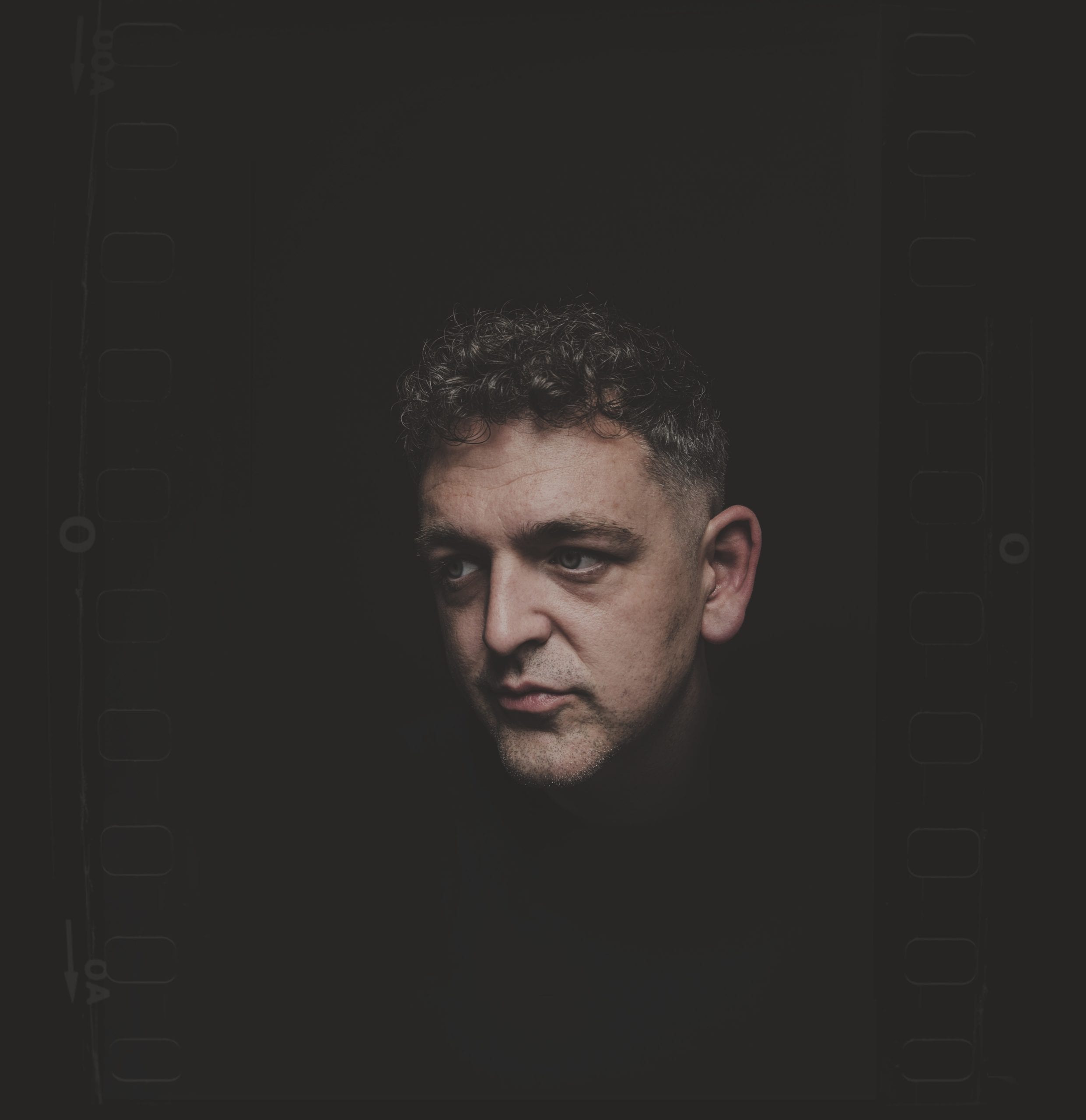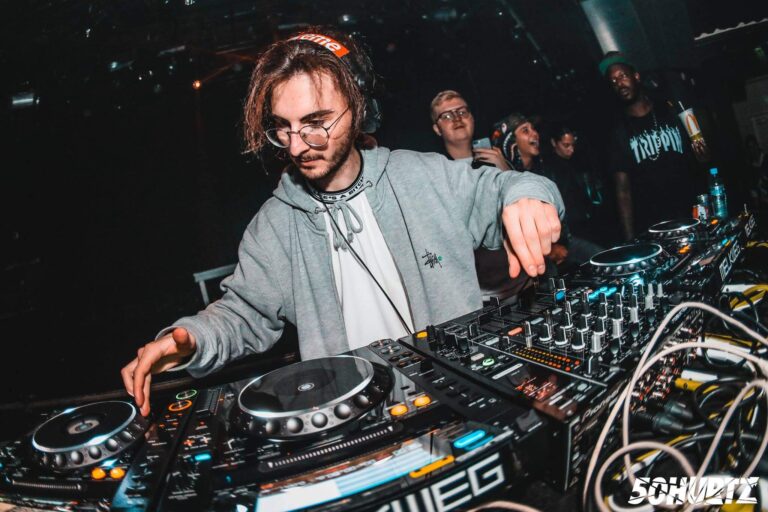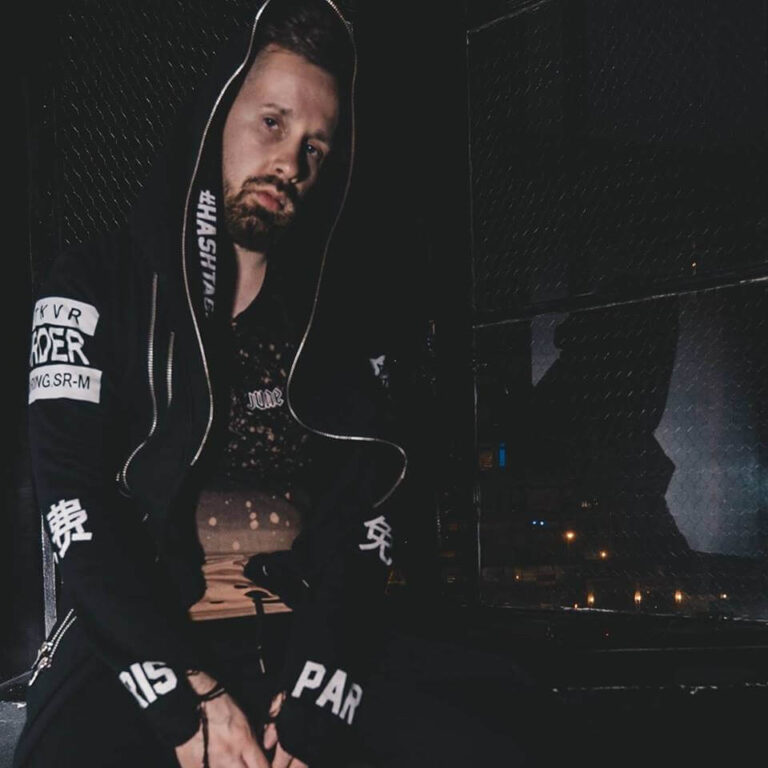Jim Coles, aka Om Unit, is the definition of a versatile producer.
The Bristol-based beat-maker constantly pushes the boundaries of what is expected within the chosen style, be it ribcage-rattling dubstep, ambient soundscape work or drum & bass-led experiments which hark back to the Blue Note days.
With two previous albums on the shelf, Threads and the equally well-received Inversion on Metalheadz, he’s been a respected and prominent presence in a number of circles for years; both a consistently reliable producer and selector.
Alongside his hefty, multi-genre influenced productions, he’s steadily been growing his Cosmic Bridge imprint, which has provided a sturdy platform for the likes of Sam Binga, Danny Scrilla, TMSV, J:Kenzo, Moresounds and Kromestar.
And it’s via Cosmic Bridge he presents to us his third studio album, Self. As the name suggests, it’s a heavily introspective piece of work which sees him exploring not only his own, complex personal journey – but also sees him delve deeper into his vast armoury of sounds.
“Self is the end-product of personal change and a period of introspection. There’s been lots of personal change in my life in recent years and the music has followed that,” he states. “I’ve always liked music that lies between genre boundaries, which is something I’ve always strived to explore.”
Coles admits Self is not an obvious album, but then again, he’s never been an obvious producer. With a myriad of musical ideas, studio techniques and emotional outcomes, it’s arguably his finest work to date.
We caught up with him to pick his brains on it.
Hi Jim, what’s the reason for the introspective nature of this album?
I’ve always been fascinated by the concept of self in terms of psychology and also the spiritual, philosophical side of things; things like self-worth, self-growth, self-acceptance and reclaiming your true sense of Self. As artists we’re constantly playing with those ideas and exploring how people perceive us, and what our “true” voice really is. There are loads of different aspects you navigate as an artist, and the idea of reclaiming the ‘self’ has given me a lot of strength.
Would you say this is you at your most experimental in the studio?
Perhaps so far, but I can see this going somewhere else altogether. Even though I have always tried to maintain my own identity artistically, somewhere along the line I feel I slowed my own creative learning. I feel like this album was me making a concerted effort to keep exploring sound. I feel like music should reflect life, no matter what style of music it is, whether it’s music for the club or the charts or whatever, it should be something you can own – something that’s yours, and something you should feel free of constriction to explore, deconstruct or change entirely.
What caused that rut?
I think perhaps I got sidetracked by playing a lot of shows; the DJing side of things affected what I was doing creatively, so this is me coming back into myself and pushing forward in the studio.
Moving to Bristol may have given you a fresh start, but has it also influenced the album?
Naturally it will have, but people always associate all these common buzzwords with Bristol, name dropping certain artists and such and while there’s a lot of talent here, there’s also so much more here under the cool music journalism radar. It’s a thriving place for music, and so that has an influence on everyone, I think. The conditions here are very good for creative people as it’s not such a sprawling metropolis as other major cities, so it’s easy to collaborate and exchange ideas with people.
Were there any specific stylistic influences for this album?
I’ve been listening to a lot of experimental 80s music lately. A lot of it is kind of spacious and experimental but shadowy at the same time. There’s a moody darkness to it, but also a sort of euphoria. I’ve drawn a lot of influence from that era which helped shaped this album.
Why that era?
It might sound strange but recently I’ve been learning to really manage my anxiety, and for some reason there’s something about experimental early 80s music, labels like On U Sound or groups like Bourbonese Qualk, which I find really calming. I have some friends who feel the same about this kind of music also, I think there’s something about hearing people being very free with their approach to creativity which is calming and encouraging.
Did your own mental health affect this album at all – or your music in general?
Not directly as such, but during the process of making this record I was definitely handling my own mental health situation by making certain life changes, changing habits and going to therapy – somatic psychotherapy, to be precise, a body-based approach which helps you connect with your emotions. It’s a deep and direct approach to solving problems in your life and some parts of the album have been a soundtrack to that process for me. With regards to anxiety about music in general, I’m not scared to share my music, so it doesn’t really affect it. I feel anxious when I’m under pressure, travelling or on the road touring, that kind of thing. It’s not something I really feel in the studio.
Do you think mental health is discussed enough by artists?
Probably not, to be honest. Musicians live life in a world of exploring the boundaries, so I think it can be helpful for them to talk about their journeys with mental health. I am encouraged by artists starting to talk about their journeys with it in the media which is great, it’s a bit less taboo these days, which is very encouraging also. We live in quite an overly-saturated world and I think we all need ways to manage our health, for me I find self-care and some sense spiritual discipline very much helps me.
Over-saturated is definitely the word. Do you think that also applies to music?
I think it’s great that anyone and everyone can create, and while yes, there is a huge quantity of music that gets released into the vast pool of sound, I don’t think it’s a problem. The downside of it however is that it can be difficult to discover music that you really connect with on a personal level. Spotify and YouTube’s algorithms are really good and help you discover all kinds of mad stuff which is cool, but it’s perhaps harder to remember certain pieces of music these days, with the lazy auto-playlist approach. That’s why it’s good to own records and listen to them over and over again, I think.
And how do you combat that modern culture of music-listening habits when you make music?
I guess you could control the format and where your music is available, but that’s probably about it. The best you can hope for is that your music goes out to the world and that enough people have access to it – you shouldn’t have any more expectations than that. Artists create art because we want to be seen and we want to be heard, that’s why we put ourselves through this. But having expectations above and beyond that is dangerous; you can set yourself up for disappointment. I’m very careful about having any expectations above and beyond what is realistic for the music I make.
I think you can have some pretty high expectations with this album – especially thanks to the collaborations on it
Thanks! It has been really enjoyable working with all of them. I asked Rider to talk about the idea of suffering, which is something I feel men don’t do enough, and his lyrics are really poignant. Amos is an alias of Amina Osmanu, the singer from a band called A Taste of Struggle. I literally gave her the beat and she came back with something really personal and pertinent which clicked with the whole concept of the album. Again, with DRS, I sent him an idea and he absolutely smashed it, as he always does. I love Del because he’s an introspective artist; he’s a true storyteller. He tackles real life issues with his lyrics.
Rider’s lyrics almost sound political – does this album carry a political message?
Definitely not, I don’t like getting into politics with music generally – creativity itself has its own internal politics. I do think it’s important for people in the public eye to express their opinion where warranted, but it’s not really something I wanted to do with this album.
Did you approach this album in a different way to your previous two?
It was more about deconstructing the process of what I already knew and putting it back together in a different way, rather than changing the actual tools I used. I just had to find ways of creating what was in my head so I was sort of “learning on the job” so to speak, even though I’ve been making music for 23 years. It’s definitely a never-ending thing, which ultimately keeps it exciting.
Out Of The Shadows definitely gave people a taste of what’s to come – you must have been happy with the response to that?
Yeah it’s been really well received which surprised me. I was very nervous and excited about sharing it as it’s a really personal piece of music, so it felt really good for it to be heard and the response has been really heart-warming. I was focusing on a motif of hope and emotional release when I wrote it, and I think the strings I wrote portray that quite well.
As was to be expected, this is a hugely diverse album. Did you make a conscious effort to do that?
I’ve always been a bit of a jack of all trades, which has been both a gift and a curse, I feel like you need courage to step away from what you’re known for and what’s comfortable for you. I like the idea of “soundtracking for a club” and it’s something I really want to go deeper into; trying to bridge functional music with something more pictorial – something that tells a story sonically – some kind of progressive style. I’ve touched on it on this album but I want to explore it more.
I can imagine Cloudwerk being played in that kind of environment
Yeah, I can too. That’s essentially got an extra track stuck to the end of it, it just felt natural. I don’t really think about that kind of thing too much in the studio; if it feels natural I’ll just lay it down. I think it’s good to trust your instinct, even if it doesn’t fit ‘the mould’. I think that kind of confidence is something that comes with age perhaps.
And what’s in the pipeline?
Cosmic Bridge is definitely the focus going forward; more shows, more great releases. I’ll also continue to work with extended label families as per usual, and just keep the journey moving!
Om Unit – Self is out now on Cosmic Bridge
Follow Om Unit: Facebook / Soundcloud / Twitter


